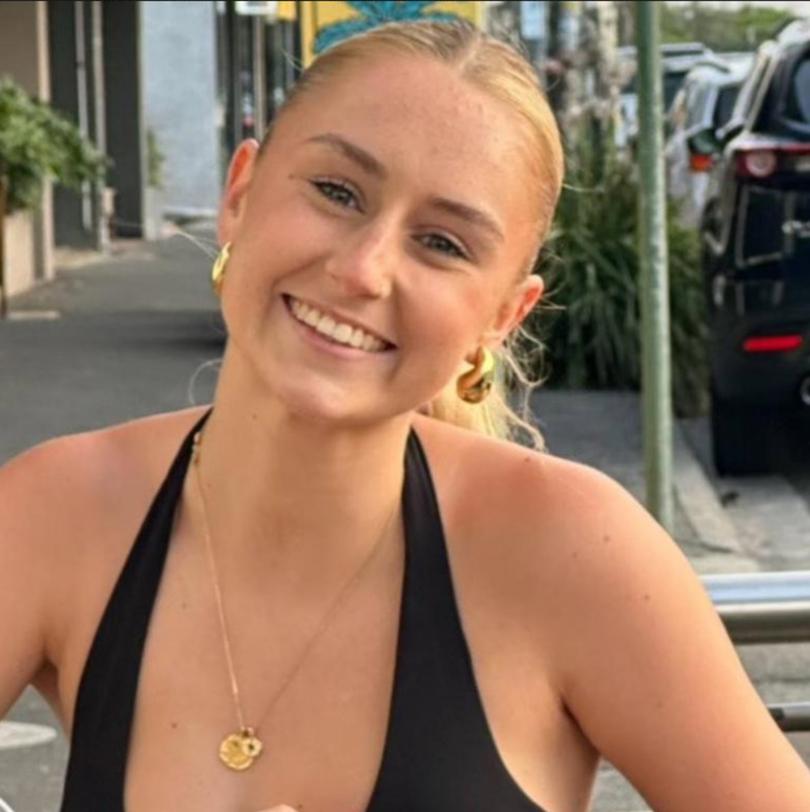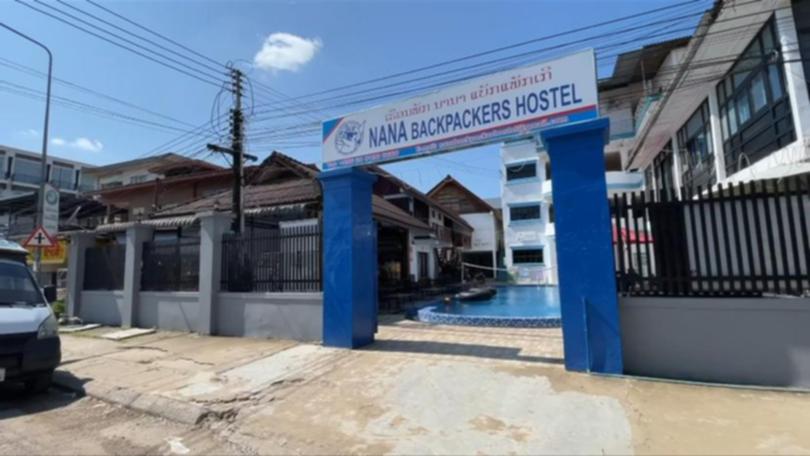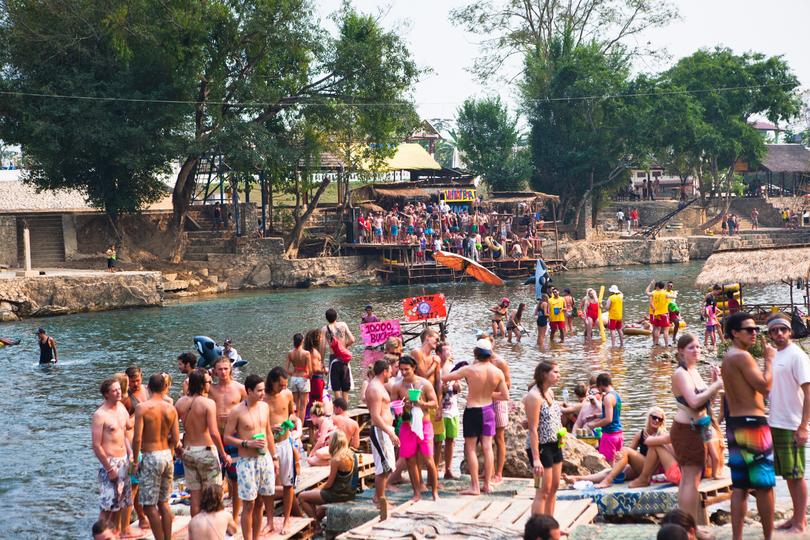Vang Vieng: The fatal Laos party town where corrupt police care more about extorting tourists than saving them
Lethal drinks have been sold for years in the tropical party town where six foreign visitors, including two Australians, died last month but corrupt police care more about extorting tourists than saving them.
For backpackers and gap-year students, the Banana Pancake Trail has become an unmissable part of any trip to south-east Asia.
It’s named after the breakfast typically served up to foreigners, and of all the stop-offs along the route, one of the most popular is the party town of Vang Vieng, in the heart of communist Laos.
But here the food on offer in some of its cafes and bars is of a very different nature to normal tourist fare.
Sign up to The Nightly's newsletters.
Get the first look at the digital newspaper, curated daily stories and breaking headlines delivered to your inbox.
By continuing you agree to our Terms and Privacy Policy.In place of pancakes there are hallucinogenic mushroom milkshakes, garlic bread laced with cannabis butter, and marijuana-infused pizzas – all for just $6.80 a go.
For those who prefer their narcotics straight up, LSD, amphetamines, opium, ecstasy and cocaine can also be purchased.
Given that Laos is a country where drugs are illegal, it’s fair to say that the seedy side of this small settlement is not one that is widely publicised. Indeed, in recent years the Government has been trying to promote Vang Vieng as an up-market eco resort.
But in the wake of recent events, the chances of a successful relaunch look fleetingly slim.
Because last month, six foreign visitors to the town – five young women and one man – died. The cause? Methanol poisoning from tainted alcoholic drinks.
Just 4ml of the substance can cause blindness. A 30ml measure can be lethal.
Methanol is a potentially deadly chemical that frequently occurs as a by-product in home-brewed alcohol or which is sometimes added to bootleg drinks to make them stronger.
All of the deceased, including 28-year-old British lawyer Simone White, are believed to have consumed vodka served $12-a-night Nana Backpacker Hostel, which is famed for its legendary happy hours.
A 57-year-old American was found dead in his bedroom at the hostel on November 13.
On the same morning, two Danish friends, aged 20 and 21, were taken to hospital. Two Australians, Bianca Jones and Holly Bowl both aged 19, followed.
Tragically, despite receiving medical treatment, in the days that followed all would die. A further dozen required hospital treatment but survived.
Simone’s grieving mother Sue described her beloved daughter’s death as “the worst experience of my life. There are no words, really”.
Warning travellers about the potential dangers of drinks abroad, she said: “Simone was a university educated, highly intelligent person. If it can happen to her, it can happen to anybody.”
Last week the manager and seven staff from the hostel were arrested and taken in to custody, with the Laos government vowing “to bring the perpetrators to justice”.
“The (government) reaffirms that it always attaches importance and pays attention to the safety of both domestic and foreign tourists,’ a spokesperson said.

Fine words ones that ring hollow to those who have seen their lives, liberty and welfare put on the line while visiting Vang Vieng.
Tourists have told how they too have fallen foul of adulterated alcohol and spiked drinks that have seen them lose their vision or rendered them unconscious and vulnerable to accidents and sexual assault.
Yet just as frightening, they say, was the attitude of local police.
Many tourists we spoke to questioned their ability to properly investigate the latest deaths – claiming to have been preyed upon by corrupt officers who, it is alleged, routinely round up Westerners, confiscate their passports and demand hundreds of dollars in cash.

Three travellers described their experiences in Vang Vieng two years ago.
They’d booked a tubing’ trip down the Nam Song River – a popular attraction where groups of tourists clamber on to huge truck inner tubes and float downstream, stopping off for drinks at bars along the way: basically, a pub crawl on water, as one put it.
“They give you a small, plastic bucket and at each bar you can fill it up with what are supposedly cocktails,” said the man, in his mid-20s, who asked not to be named.
“After we had finished, me and one of the guys went to a restaurant and he just completely passed out. His head was on the table and he was out of it ... I was feeling for a pulse. I think his drink was spiked. What would have happened if he had been on the river when he lost consciousness?”
Fortunately, his friend recovered, but a brush with the local police later on during their trip was equally terrifying.
The three visited a music festival, where one of their number was attacked by a group of locals.
When they tried to report the incident, a police officer pulled a gun on them and took them to the station.
“The police said that we had been sexually assaulting girls and these guys had been trying to protect them,” the man said. “They told us to hand over our passports and then wanted money to give them back.
“In the end a member of staff from our hotel came down and told police we wouldn’t sign the ‘confession’ they had prepared for us. They were trying to find a reason to hold us and then to extort money from us.
“And these are the same people who are supposedly going to be investigating these awful recent deaths.”
Located 130km from the capital of Laos, Vang Vieng’s transformation from a small farming community to a hedonistic party hub began as the country opened up to international tourism in the late 1990s.

Unsurprisingly, however, the combination of open water and plentiful alcohol and drugs was a recipe for disaster, with 27 people drowning in 2011 alone.
At one stage ten backpackers a day were seeking treatment at the ocal hospital with broken bones or infected gashes, or sickness caused by alcohol or other drugs.
The high death toll prompted a crackdown on bars and a temporary tubing ban the following year.
But the tragedies did little to dent the town’s popularity, and until recently, the go-to accommodation was Nana’s, where $12 buys backpackers a night in a room with 12 to 20 beds and a shared bathroom – and as much booze as they can handle.
“Every night from 8pm to 10pm you get free whisky or free vodka,” one 18-year-old student said. ‘It’s a way of socialising and a massive attraction, and people from other hostels will come and join in.”
While she did not have any adverse reaction to the alcohol, others noticed that it tasted unlike any spirits they had drunk before.
“I can still remember my first sip – it was so awful I almost gagged,” said another 19-year-old traveller who was there in April.
“By the third glass I couldn’t take any more – I felt nauseous, bloated and was sweating heavily.
“One of my friends was violently sick later that night and we all woke up with sore throats, burned by whatever it was we had drunk. From then on we didn’t touch it again.”
While the manager of the hostel has insisted there was nothing wrong with the alcohol served – even theatrically downing glasses of vodka in front of visiting journalists – the investigation into the deaths appears to be firmly focused on the venue.

Last week British traveller Lucy Davison, who was with her boyfriend, told of her lucky escape after visiting the hostel at the same time as those who died.
“I would just not want anyone to go through what me and my partner have had to go through because it’s literally been the worst two weeks of our lives,’ she
said in a video posted on TikTok.
She explained that while at Nana’s she and a group of ten had shared a bottle of free vodka.
‘It wasn’t until 15 hours later that my symptoms started to kick in, which were extreme tiredness;
“I was practically asleep for the whole day,’ Ms Davison said.
“I was violently throwing up, I had vision impairment, like I could barely see, it was like bright lights, and high fever.”
Ms Davison’s boyfriend rushed her to Vientiane, the capital, where she was placed in an intensive care unit for 24 hours and where, she believes, the doctors and nurses saved her life.
One British family is now calling for the circumstances of their 19-year-old son Lee Bartlett’s sudden death at the hostel five years ago to be looked at again.
They say there was no proper investigation at the time and they fear he may also have been a victim of methanol poisoning.
“We never saw anything from the police in Laos,’ Mark Bartlett, 57, told The Sun newspaper. “They
just classed it as sudden death – a natural thing. They don’t really investigate anything – they just
accept that these things happen and move on.
“Lee was a fit and healthy guy, so there was no real reason why he would suddenly die. We’ve always thought that there was something not quite right.”
Lee, a British roofer who’d hoped to join the Navy, was found unresponsive in his bed by a friend in the early hours of one morning in May 2019.
Another traveller, who was staying in the hostel at the time as Lee, described how he was instructed by staff to help move the teen’s body out of the building and into a tuk-tuk to be taken to hospital.
The 42-year-old, who asked to remain anonymous, said local police didn’t turn up for five hours, and then didn’t bother to interview him or any of the other guests.
Lee’s death was simply “brushed over” he said.
An inquest heard how Lee had not suffered any injuries and there was no evidence of assault or restraint, and was unable to determine a cause of death due to
“insufficient evidence”
Until recent events, it seems that concerning incidents were commonplace at Nana’s.
A trainee solicitor described how his last memory of a visit to the hostel in 2019 was drinking two free shots of whisky at the bar. When he woke up the next morning, he believed he had been sexually assaulted and realised his money was missing.
“I felt upset and angry at the hostel,’ he said. ‘But when I spoke to the staff about the assault, I remember being laughed at.”
Others to have fallen foul of the police while in Vang Vieng include a British video blogger who calls himself Global Treats.
The man told how a visit to one of the town’s bars in 2022 also ended up at a police station.
“We went down to a happy bar,’ he said. “What that means is that you order a beer and then they pull out a menu from under the counter, with all the drugs – everything from cannabis to opium – for sale.”
A couple from his group bought a cannabis joint which they partly smoked in the bar before all left to return to their accommodation.
What they did not realise was that they were being followed. Back at their hostel, police told the men they were under arrest, forcing them into the back of a pick-up.
Four of them had their passports confiscated. “The police said you have two choices – you can either go straight to jail, no trial, no anything, you will literally get chucked in a jail for 10 years or you can pay us 5,000,000 kit ($350) and this problem will go away.”
They were then handed a map showing the location of the nearest cash point machines.
“They had no choice,” he said. “They gave their money to the policeman who, with no shame, shared it among the staff and the people who had arrested us the night before.”
Whether or not the latest deaths will prompt the authorities to act only time will tell.
Back in Vang Vieng and with Nana’s now closed and the news of the deaths having spread, other businesses are already seeing reduced visitor numbers.
A French bar owner, who has lived in Vang Vieng for over two decades, believes that the international attention will give the authorities “good reason” to accelerate investment to transform the town’s image.
“Yeah, progress is slow, but this crisis may push Vang Vieng towards a more upscale, regulated tourism destination,” he says.
Something that those who have had the misfortune to fall foul of the town’s darker side believe is long overdue.
